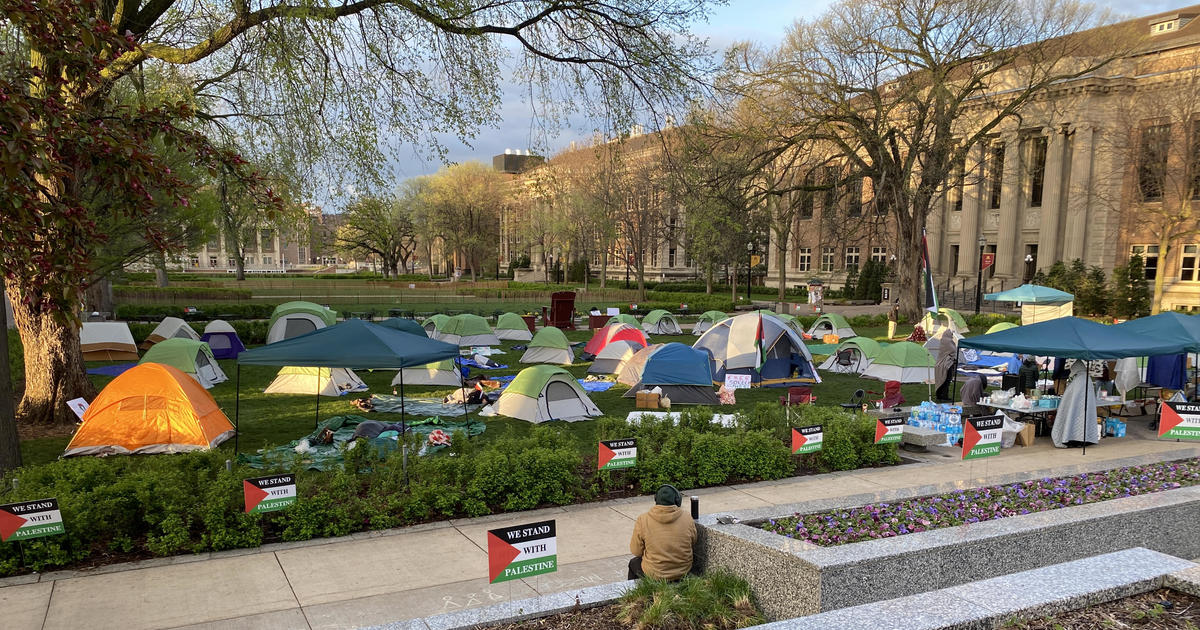When Will The Pandemic End?
MINNEAPOLIS (WCCO) -- As COVID-19 vaccinations rise, case counts, hospitalizations and deaths have fallen. So, 15 months after the pandemic started, people are beginning to ask: When will it end? Good Question.
"This is not going to have a definitive ending that we sometimes see with outbreaks," said Jan Malcom, Minnesota's Commissioner of Health. "It's a global phenomenon."
It was March 11, 2020, when the World Health Organization officially declared the COVID-19 pandemic. According to the WHO, the declaration is a way to characterize an outbreak, but it holds no official meaning. It will no longer be considered a pandemic when the worldwide spread stops.
When WCCO posed this Good Question to people walking Bde Maka Ska on Wednesday, the answers ranged from "no idea" to "the end of the year" to "we're acting like it is."
Respiratory therapist Ayantu Hassan said most people already think it's over, but not her.
"We're still dealing with COVID patients," Hassan said.
University of Minnesota infectious disease expert Michael Osterholm calls pandemics worldwide epidemics – they occur not just one region, but worldwide.
"The challenge we have when declaring a pandemic over is that, in it of itself, it doesn't really, in a sense, end," he said, comparing it to the HIV/AIDS pandemic in the 1980s. "HIV/AIDS didn't go away, it just became an everyday normally expected problem. At that point, it no longer held it's pandemic status, because there wasn't an outbreak around the world. It was what you expected."
In the U.S., Malcolm says vaccination will be key to feeling like the pandemic isn't ruling people's lives. Both state and federal officials are striving for a benchmark of 70% vaccination of American adults.
When asked if reaching that 70% threshold gets the U.S. closer to the end, Malcolm responded that it's an important milestone.
"We want to get beyond 70%, but that's a good amount of protection that gives the virus less place to go and less places to continue to spin off these variants that have to be the thing that we guard against," she said.
Experts say variants are an important component of how and when this pandemic will end, given the global reach of the virus and far lower vaccination rates in many countries outside the United States.
"We're seeing new strains of the virus which can reduce the protection of the vaccines," says Osterholm. "As long as transmission continues around the world, we will be at risk of these variants, or these mutated viruses, so our status today may not be the same status we have tomorrow."
Malcolm says there are some specific metrics that help state officials determine "caution" levels of virus spread and transmission. Those metrics include the percentage of tests coming back positive, cases per 100,000 people and hospitalizations per 100,000 people. The state of Minnesota just recently fell below caution levels for each of these metrics.
"We do really want to see these measures stay stable for a few weeks before we really feel it's going to stay at that level," says Malcolm.
Though it's up to the WHO to officially declare an end to a pandemic, people across the world have different definitions of what "over" means.
One Minneapolis resident asked, "Is it ending here in the states – to where life gets back to normal? Is it ending worldwide where travel gets back to normal. Is it all countries? And, then it is going to end for good or is it going to come back?"
She added, "I think everyone will get to their own individual endpoint at their own individual timeline."
Malcolm says an important point to remember is that experts believe the virus won't ever go away. She says it's likely that cases will once again rise this fall in the U.S., but many Americans now have been vaccinated and medical professionals have better treatments for COVID.
"We would consider it to be in a different state – not an epidemic, but endemic," she says. "Something that's always there and needs to continue to be managed."



